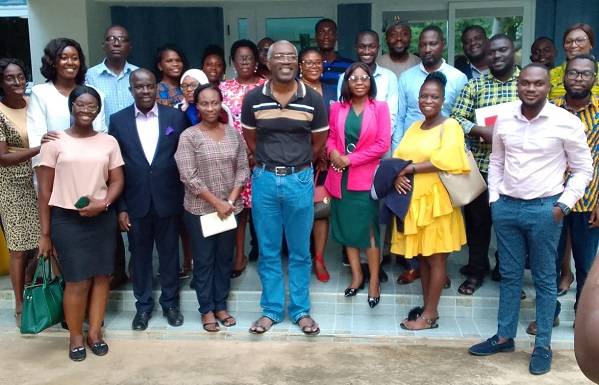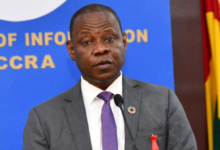
The Management of industries using radioactive materials have been advised to stop unsafe operations in their establishments to ensure public safety.
The Director of Radiology and Non-Ionising Directorate of the Nuclear Regulatory Authority (NRA), Professor Augustine Faanu, also advised the public to take safety into their own hands as they transact businesses at those places in order not to pick radioactive materials from such places.
He made the call at a day’s workshop for selected media practioners aimed at building their capacity on the benefits and harmful effects of radiation.
The event also sought to sensitise the 22 participants on the role of the NRA in the country’s nuclear power programme.
Topics discussed include the basics of radiation, NRA processes and authorisation procedure, the glossary and the definitions of nuclear terms and the Acts that established the NRA.
The NRA is an independent nuclear regulatory body established in 2016 by the nuclear regulatory Act 2015, Act 895 to regulate the civilian use of radiation (both ionising and non-ionising) in Ghana to ensure the protection of the public and the environment from the harmful effort of radiation.
In order to ensuring public protection from radiation hazards, the NRA also develop regulation and guides on the use of radiation emitting devices (X-ray and CT Scan machines such as mammography and fluoroscopy machines), radioactive sources, monitor and regulate nuclear and radio therapy equipment, linear accelerators, gamma radiation facilities and nuclear reactor.
Prof. Faanu said radioactive is classified under the United Nations as dangerous and as such must be controlled, adding that is why the NRA would strictly enforce its regulatory processes to ensure that the right things are done in any industry using radioactive materials.
The Director-General of the Nuclear Regulatory Authority, Ghana, Dr Nii Kwashie Allotey, in his opening remarks urged the media to partner government in its quest to add nuclear power to its energy mix.
According to him the mere mention of “nuclear” creates fear and panic in a lot of people which they roughly translate as “Atomic Bomb’ even though that is not the true picture behind the name.
“It was for these reasons that the support of the media is needed to help demystify the negativity surrounding the name towards winning public support for the successful implementation of the programme,” he added.
“The myth surrounding the name must be broken towards economic prosperity,” he added.
Nuclear accidents, he indicated are always of international concern as such the rights things must be done to ensure the safety of the public who are expected to greatly benefit from the programme from its inception stage to completion and usage.
Dr Henry Lawluvi of the Radiological and Non-Ionising Directorate said humans are daily exposed to radiation which at times results in skin breakdown, cataract of the eyes and heredity effects.
Radiation he indicated is also used in laboratories, food processing, breweries, oil logging, energy sector and urged the public to look out for specific radiation symbols before entering such premises in order to ensure their safety.
BY LAWRENCE VOMAFA – AKPALU






